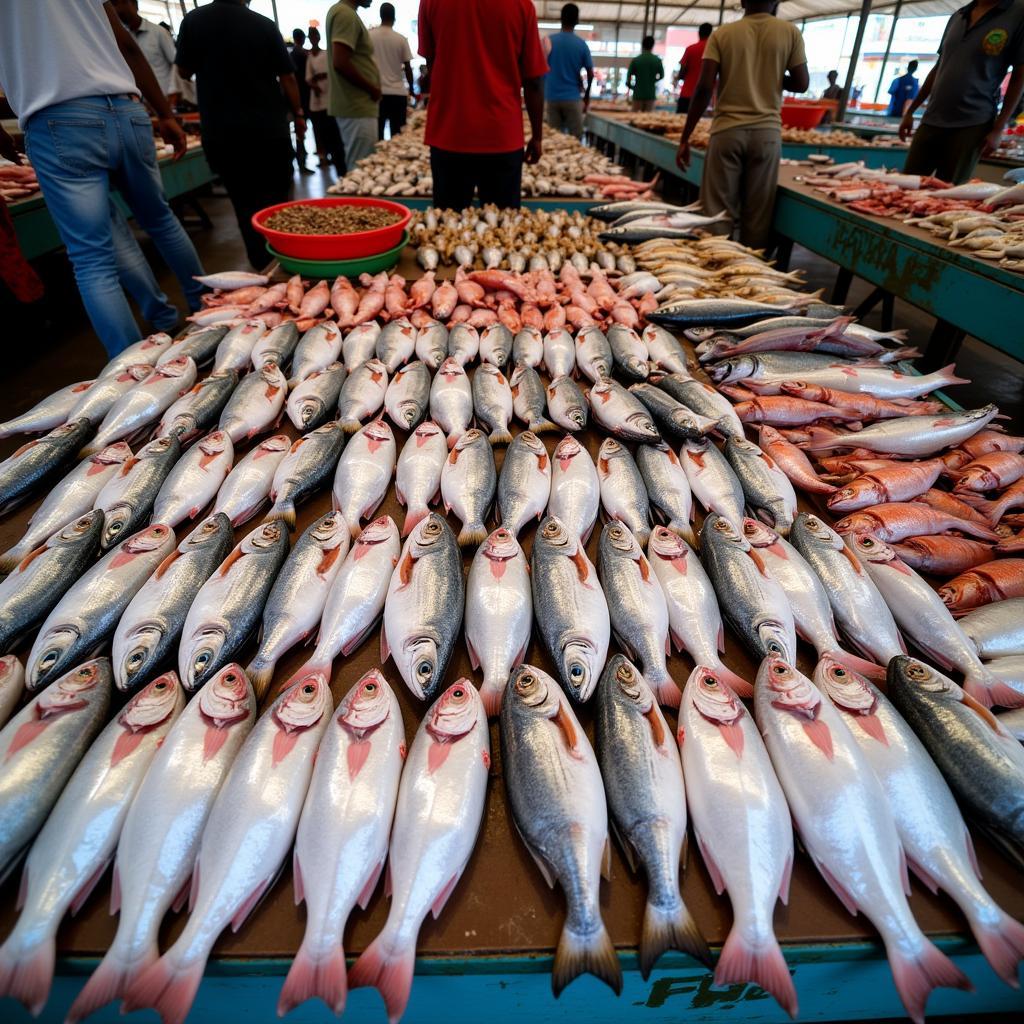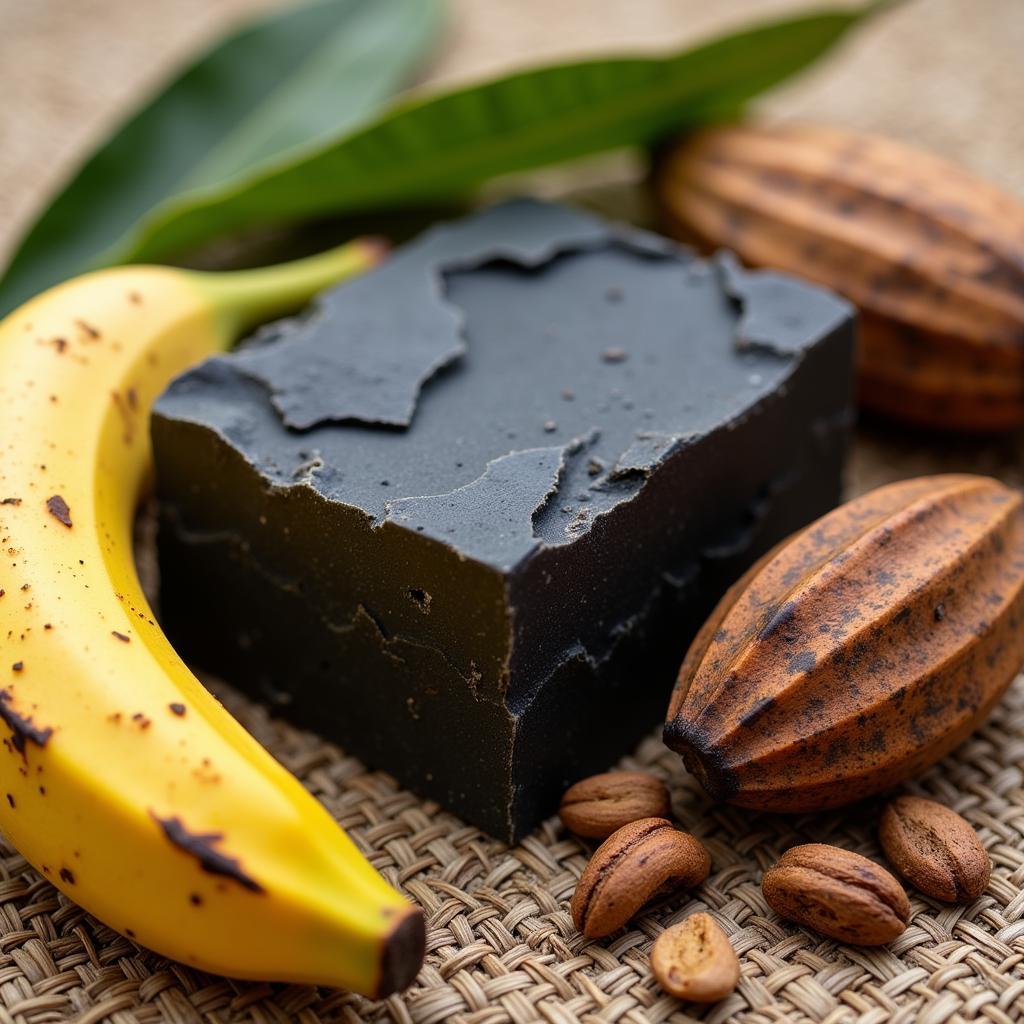Delicious African Fish to Eat: A Culinary Journey
Africa, a continent teeming with diverse cultures and ecosystems, offers a rich tapestry of culinary experiences. Among its treasures are a variety of delicious fish species that contribute significantly to local diets and economies. Discovering the world of African Fish To Eat is a fascinating exploration of flavor, tradition, and sustainability. Dive in with us as we explore some of the most popular and unique fish found across the continent.
The Nile perch, a formidable freshwater giant, is a mainstay in many East African communities. Its flaky white flesh and mild flavor make it exceptionally versatile. From grilling over open fires to simmering in rich stews, the Nile perch is a culinary chameleon, adapting beautifully to various cooking methods. In West Africa, the capitaine, known for its firm texture and delicate taste, is another beloved fish. Often smoked or fried, it holds its own in spicy sauces and aromatic rice dishes. These are just a few examples of the incredible diversity of African fish to eat.
Exploring Popular African Fish Species
From the depths of Lake Tanganyika to the coastal waters of the Atlantic, Africa’s waters boast a remarkable array of edible fish. Let’s delve deeper into some of the most sought-after species.
The Mighty Nile Perch: A Freshwater Favorite
The Nile perch, native to the Nile River basin, has become a significant food source in East Africa. This large fish, known for its impressive size, offers a substantial yield of meaty, white fillets. Its mild flavor allows it to absorb the flavors of seasonings and spices, making it incredibly adaptable in various cuisines. Whether grilled, fried, or baked, the Nile perch consistently delivers a satisfying and nutritious meal. This fish even plays a crucial role in the local economies, supporting livelihoods through fishing and trade.
The Versatile Capitaine: A West African Delight
The capitaine, a popular fish in West Africa, is prized for its firm, white flesh and delicate flavor. Its adaptability in various cooking methods makes it a favorite in many households. Whether smoked, grilled, or fried, the capitaine retains its delicate texture and absorbs the flavors of the accompanying sauces and spices. It is often paired with aromatic rice dishes, stews, or grilled plantains, creating a balanced and flavorful meal. The West African lungfish offers another culinary option.
 Smoked Capitaine with West African Spices
Smoked Capitaine with West African Spices
Other Notable African Fish Species to Explore
Beyond the Nile perch and capitaine, numerous other fish species contribute to the diverse culinary landscape of Africa. The tigerfish, known for its aggressive nature and sharp teeth, offers a firm and flavorful flesh. The Zambezi bream, found in southern Africa, is another popular choice, often grilled or baked. And let’s not forget the smaller fish species, such as the various types of tilapia, which are readily available and contribute significantly to local diets. Even African jewel fish tank mates are a consideration. You might be interested to know that the African catfish is an invasive species and has even been threatening Indian fish species.
 Variety of Fresh African Fish at a Local Market
Variety of Fresh African Fish at a Local Market
Preparing and Enjoying African Fish Dishes
African fish cuisine is as diverse as the continent itself, with each region boasting its own unique preparations and flavor profiles. Many coastal communities favor grilling their catch directly over open fires, allowing the smoky flavors to infuse the fish. Inland, stews and soups are common, incorporating local vegetables and spices to create hearty and flavorful meals. Spices like ginger, garlic, chili peppers, and cumin are frequently used, adding depth and complexity to the dishes.
Conclusion
From the Nile perch to the capitaine and beyond, African fish to eat offer a culinary adventure like no other. Their diverse flavors, textures, and cooking methods reflect the rich tapestry of cultures and ecosystems across the continent. Exploring these culinary treasures is not only a delightful gastronomical experience but also a journey into the heart of African traditions and sustainability. So, the next time you’re looking for a delicious and nutritious meal, consider adding some African fish to your plate.
FAQ
- What are some common cooking methods for African fish? Grilling, frying, stewing, and smoking are common methods.
- Where can I find African fish to buy? Specialty stores, online retailers, and some local fish markets may carry African fish species.
- What spices are typically used in African fish dishes? Common spices include ginger, garlic, chili peppers, and cumin.
- Are there sustainable fishing practices in Africa? Yes, many communities and organizations are working towards promoting sustainable fishing practices to protect fish populations.
- What are some popular side dishes served with African fish? Rice, plantains, fufu, and various vegetable dishes are common accompaniments.
- What are some health benefits of eating African fish? African fish are a good source of protein, omega-3 fatty acids, and essential vitamins and minerals.
- Are there any concerns about overfishing of African fish species? Yes, overfishing is a concern in some regions and sustainable practices are essential to ensure the long-term health of fish populations.
Common Scenarios & Questions:
- Scenario: Planning a trip to East Africa and want to try local cuisine. Question: What are some popular fish dishes to try in this region?
- Scenario: Looking for a healthy and sustainable seafood option. Question: Are there any African fish species that are considered sustainable choices?
- Scenario: Trying a new recipe and looking for cooking inspiration. Question: What are some traditional African fish recipes that I can try at home?
Further Exploration:
For more information on specific African fish species, check out our articles on African darter images and learn more about the African catfish invasive nature.
Need Help?
For assistance, contact us at:
Phone: +255768904061
Email: kaka.mag@gmail.com
Address: Mbarali DC Mawindi, Kangaga, Tanzania.
Our customer support team is available 24/7.


